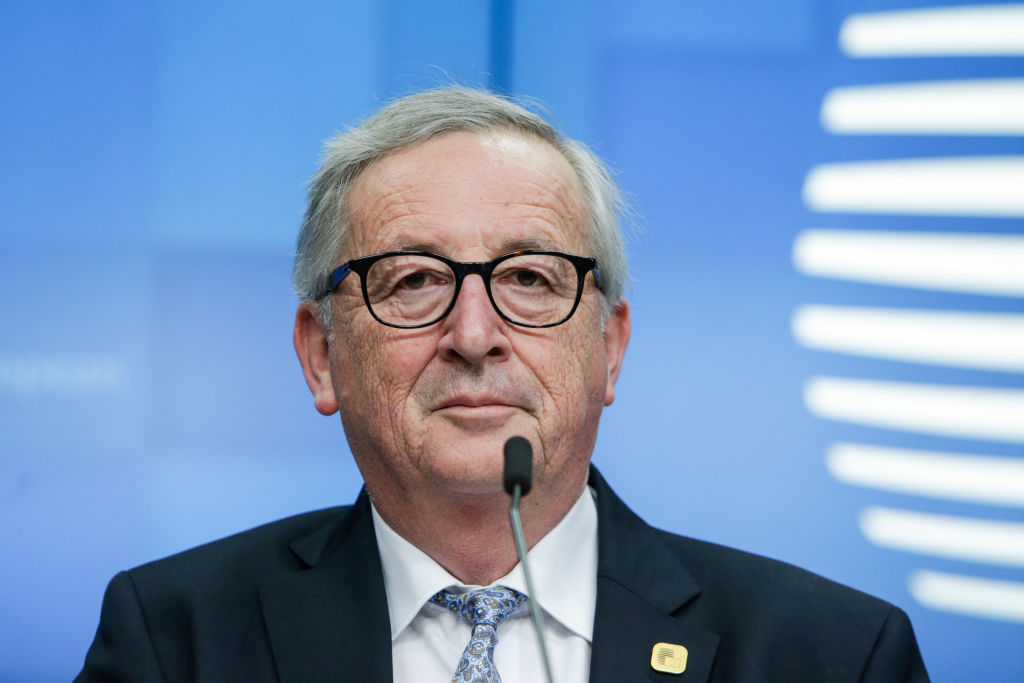We are now meandering towards a real Brexit deadline. In typical British fashion, we’ve let the other two times that they bumped into us with their trolley in the supermarket go. In similarly typical fashion, the third time is about to be “not on”.
But as we head towards the inevitable, it is worth understanding the simplest of truths: the EU was never capable of dealing with Brexit. And an even bigger truth must be whispered very quietly: they can’t conclude Free Trade Agreements.
We turned insular immediately after the vote. We blamed ourselves and began a long internal debate which almost never mentioned the EU – just a lot of class warfare and Godwin’s law. But a Withdrawal Agreement (WA) is – and was – a distraction. It is not needed in any comparable treaty.
Take a look at what NAFTA says:
Article 2205: Withdrawal
A Party may withdraw from this Agreement six months after it provides written notice of withdrawal to the other Parties. If a Party withdraws, the Agreement shall remain in force for the remaining Parties.
And the CPTTP, which says:
Article 30.6: Withdrawal
-
Any Party may withdraw from this Agreement by providing written notice of withdrawal to the Depositary. A withdrawing Party shall simultaneously notify the other Parties of its withdrawal through the overall contact points designated under Article 27.5 (Contact Points).
-
A withdrawal shall take effect six months after a Party provides written notice to the Depositary under paragraph 1, unless the Parties agree on a different period. If a Party withdraws, this Agreement shall remain in force for the remaining Parties.
While all EU treaties prior to Lisbon had this to say:
…
That’s right, nothing. The idea of a WA is entirely novel to law. It was invented in the Lisbon Treaty, but that very same Treaty doesn’t bother to define it.
Without definition, words in an agreement are utterly pointless – if I sign one with you, promising you a made-up sum of money, then that means nothing at all. So why have we all fixated on a Withdrawal Agreement (WA)?
Because, you see, leave or remain voter, admitting the truth was much harder; but, the EU, under the Lisbon Treaty, just doesn’t function. It’s been easier to waste three years arguing about the text of a unicorn WA – which turned in to a shopping list of the EU27, than to accept that truth.
When was the last time the EU concluded an FTA? You may have been misled into thinking it was Japan – no, that wasn’t not ratified. Canada? No, not ratified either.
Every EU state has one really big trading partner – the USA. Good idea to get an FTA with them isn’t it? No. The EU couldn’t even pretend to sign that one. It was vetoed. What about Brazil? They’re a colossal market. Best not to ask, but no. The Australians? Incredibly charming, honest trustworthy people – surely we have got an FTA with them? Err, no…says Brussels.
The sad fact has always been that Ivan Rogers is right – in the end, they won’t manage to do one with us either. If it interests you, look here for their own view of their record (note even they only claim South Korea). Look a bit closer and the detail of even that one FTA is here.
The truth is that membership of the EU took away our ability to make our own FTAs. The reward was hardly any FTAs and increasingly global isolation. Now we see the culmination of that – they won’t even be able to conclude one with us. If the EU can’t – and three years of voluntary inaction has shown it can’t – conclude an FTA with the UK then honestly, what hope does it have?
Theresa May is the first sad casualty of this truth. But what is the point of castigating her successor, whichever charming blonde-haired wonder he be, with this false pursuit of a WA? A WA means nothing, Tweedledum-like it has been perverted in to a weapon against the UK for daring to try to leave. We, rightly, rejected it. But even had we accepted it, it would not have made the slightest difference. Stage two after the WA is accepted or rejected is an FTA negotiation – but, whisper it with me, they can’t conclude FTAs.






Comments